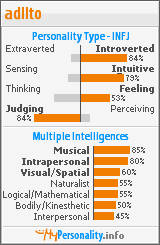 Is this a cello or not a cello? It’s called a theremin cello and was invented in the late 1920's by Leon Theremin who was incidentally a cellist. Lacking strings, it has a flexible plastic film fingerboard which, when touched, produces a tone electronically. Leon Theremin is not holding a bow rather a control lever. Is the instrument a cello? The verdict is out at the moment but I'm fascinated by it but sadly not sure I can ever get my hands on one to decide.
Is this a cello or not a cello? It’s called a theremin cello and was invented in the late 1920's by Leon Theremin who was incidentally a cellist. Lacking strings, it has a flexible plastic film fingerboard which, when touched, produces a tone electronically. Leon Theremin is not holding a bow rather a control lever. Is the instrument a cello? The verdict is out at the moment but I'm fascinated by it but sadly not sure I can ever get my hands on one to decide.
I’ve been thinking recently about what love is and what it is not? I think I've fallen in love seriously three times in my life. What was it the rest of the time? As life has gone on I’ve learned to distinguished between love, lust and obsession within human relationships but what makes love love. I've trying to think this through philosophically, theologically and psychologically. This isn't the end of my thinking but a pause to record things. (two websites have helped 1 & 2)
Formerly I have rejected definitions that love is a physical or hormonal thing but it might contribute to the state of being in love i.e. the experience. Yesterday sitting in service I was thinking and finally rejected the idea that love is an emotion because emotions or feelings are part of the experience of being in love. Philosophically there seem to be three points of view. 1/Love as communion - which creates a “we”, a community, 2/ Love as robust concern - which takes seriously choice and will in dealing with altruism, and 3/ Love as valuing the other - this may take the form of judging the loved as having worth, or the placing of value on the other. I think these are quite helpful to provide a deeper and less causal and casual understanding when we take them as motivational towards the goal of Christian spirituality being to fall deeper and deeper in love with God.
Theologically, when I consider Love the Lord your God with all your heart and with all your soul and with all your strength and with all your mind... I note I have still have much to learn about different understandings of the human person, but I will assert that love is set separately from emotions and cognition and even the will. I have come to understand through many conversations this summer and Saturday's re-reading of Martin Buber, (see previous post), I think love is not a relationship, not something one person can have alone, but the mutuality of an I-Thou relationship. I noticed that Buber wrote a postscript to the second edition of I and Thou which I think is helpful.
As a Person God gives personal life, he makes us as persons become capable of meeting with him and with one another. But no limitation can come upon him as the absolute Person ... The [hu]man who turns to him therefore need not turn away from any other I-Thou relation; but [t]he[y] properly bring... them to him, and let... them be fulfilled "in the face of God.This takes a deeper significance if we accept that God is love. A recent study caused us to compare a Chinese translation and the Greek/English versions of 1 John. The predicate construction around the verb to be exposes two possibilities, (as I see it, though I am not a Greek scholar), 1/ love as adjective naming a quality of God or 2/ love as noun God is literally love and love is God. In terms of the first, I think in human terms we can only really know love and see love in practice and not God. In the second God defines what is authentically love by being love.









